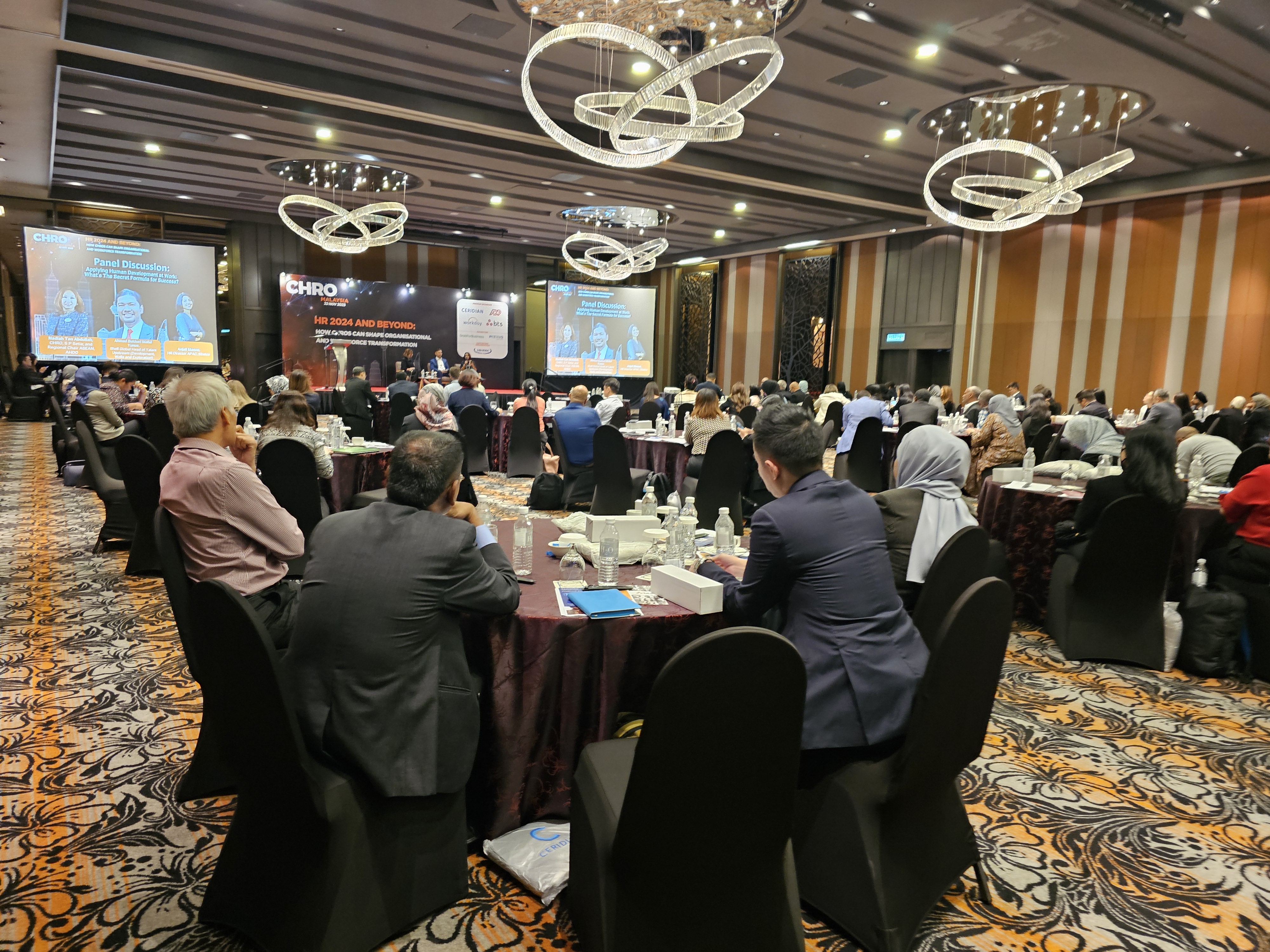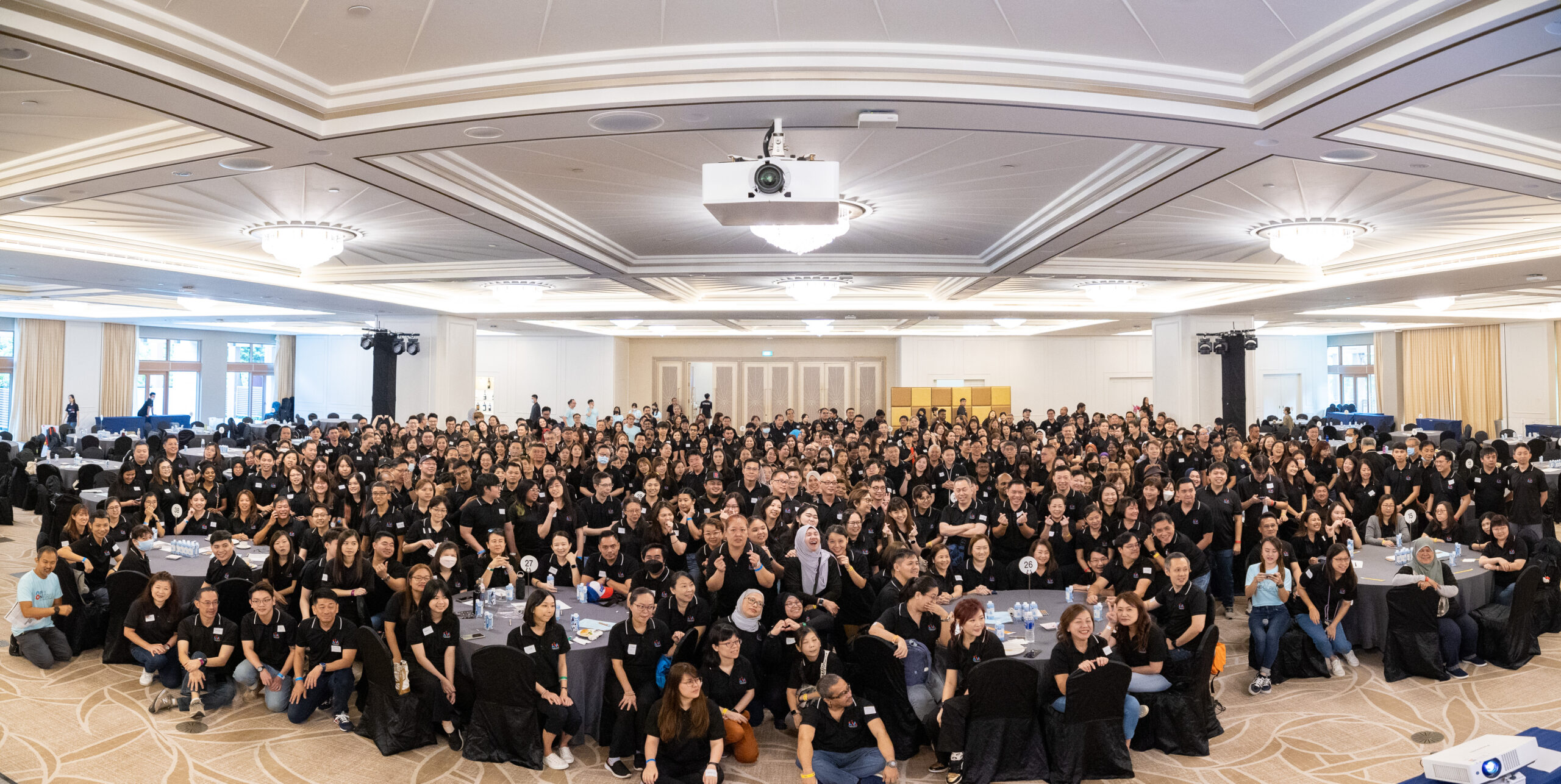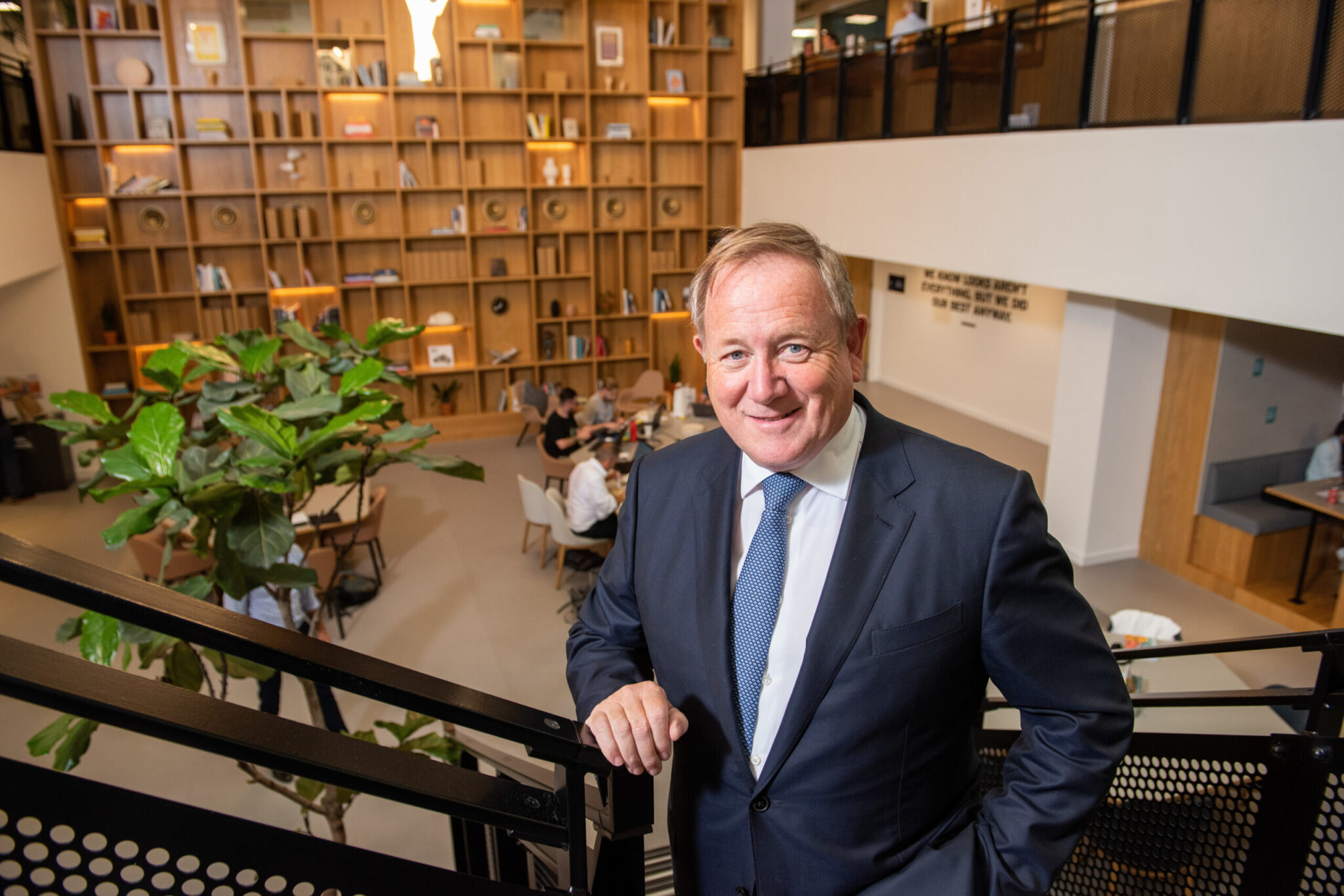People development driving workforce transformation
- Shawn Liew

More than 100 HR and business leaders participated in HRM Asia‘s CHRO Malaysia 2023, which took a deep dive into key workforce and talent trends.
As the approaching new year brings about new challenges and opportunities alike, forward-looking leaders who are looking to build strategies that will allow their organisation to thrive in 2024 would do well to adopt a people-focused approach.
For the more than 100 HR and business leaders who converged at the Hilton Petaling Jaya, CHRO Malaysia 2023, organised by HRM Asia, provided a timely platform to share best practices and learn the latest insights that are likely to drive workforce transformation.
Kicking off the event with his keynote address, Thomas Mathew, Group CEO, Talent Corporation Malaysia (TalentCorp), highlighted Malaysia’s changing talent landscape and offered three main thrusts that can be utilised to drive the country’s talent strategy.
Firstly, optimise Malaysian talent, because the Malaysian talent pool is the most vital and sustainable source of talent for now and the future, said Mathew. Next, attract and facilitate global talent, because the inflow of global talent complements the local talent pool by bringing in positive spill-over effects as they interact with one another.
Lastly, create structured networks of top talent to facilitate direct engagement and collaboration for initiatives and policies, he added.
Human Development (HD) holds the promise of enriching many lives in Malaysia, and unlike HR, which deals with the practical aspects of people management, HD improves people’s wellbeing and allows them to decide who to be, what to do, and how to live, said Nadiah Tan Abdullah, CHRO S P Setia; and Regional Chair ASEAN, ASEAN Human Development Organisation (AHDO).
Advocating for more organisations in Malaysia to embrace HD, she also moderated a panel discussion around how organisations can apply HD at work. Ahmad Bukhari Mohd Yunus, Shell Global Head of Talent Upstream (Development, Wells and Exploration; and Anjali Menon, HR Director APAC, Sibelco, agreed that many organisations are still not familiar with the concept of HD.
For HD to thrive in Malaysia, organisations must leverage on the concept of network to create better understanding and sharing of knowledge to create sustainable growth. How can organisations, then, determine the success of their HD strategies?
Organisational capability, employee satisfaction, and access to mental and physical health care are some of the success metrics for HD, the panel offered.
The three biggest workforce challenges facing organisations today are: Employee engagement and retention (55%), labour and skills shortages (50%), increasing compliance and regulatory complexity (48%), shared Rob Squires, VP, Regional Head of Asia and Japan, Ceridian.
Drawing on key research from Ceridian, he added that while 80% of global leaders believe that their workforce has all the skills needed to achieve organisational goals in the next two years, 92% said their organisation are lacking in at least one of the group of specalised technical skills, industry-specific skills, creative skills, and less than half said their organisations use technology to optimise skills usage.
To create an effective upskilling and reskilling strategy to combat labour shortage, Squires recommended making learning and development (L&D) a strategic priority, offering continuous, broad, and personalised opportunities, as well as actionable development plans to help employees build diverse skills.
Placing the spotlight on employee wellbeing, John Antos, Vice President Strategy, Global Payroll & Asia Pacific, ADP, highlighted that employees in Asia-Pacific are saying that their work is suffering due to stress (65%) and poor mental health (47%).
The proportion of employees who feel supported by their managers when it comes to mental health has fallen from 70% in 2002 to 64% today. A fifth of employees say creating an inclusive workplace culture is a key part of their employer’s support for positive mental health and organisations need to recognise the critical role front-line managers play in creating a caring workplace culture by empowering and supporting them in these efforts, said Antos.
Why should organisations care about culture, asked Karnada Sharpe, Associate Director, BTS Asia Pacific.
Organisations with a distinctive culture, she revealed, have better business outcomes in terms of higher revenue (48%), higher employee satisfaction (80%), and customer satisfaction (89%).
To make culture matter and stick, it must be connected to strategy and business outcomes. It also requires accountability and buy-in from senior leaders and must be cascaded to all organisatinal levels at scale.
Drawing on the famous quote of “culture eats strategy for breakfast” by renowned management consultant and author Peter Drucker, Sharpe offered her own take, “Culture and strategy are mutually reinforcing or simultaneously defeating. In other words, mutually reinforcing culture and strategy eats everybody’s lunch.”
As one of the most recognisable brands in Malaysia, sustainability is a key pillar for PETRONAS. Joining CHRO Malaysia 2023, Junita Abd Aziz, Head of Global Learning and Development, PETRONAS, shared the key L&D practices that are driving the energy group’s sustainability strategies.
These include clarity of direction and speed, which starts with the ‘why’ to create intentional top-down and bottom-up engagements; a focus on materiality, which emphasis on ‘less is more’; and collaboration for alignment and focus, where actions are aligned to focus on purpose and materiality.
READ: CHRO Singapore to explore the pillars of a successful future of work
If organisations are still contemplating their flexible work strategies for 2024, it would perhaps come as no surprise that people will be at the heart of any decision-making.
With a shift in priorities, employees today want to fix work around their lives. For flexible work arrangements to succeed, leadership and management styles need to change to be able to motivate and engage employees and provide choices and access to equal opportunities for all employees, a panel discussion moderated by Dr Vinika Rao, Executive Director, INSEAD Africa Initiative and Hoffman Global Institute for Business & Society, Asia, recommended.
Joined by Mitzie Antonio, HR Director at Nestle Malaysia and Singapore; Then Sik Kwang, Head of HR, DHL IT Services; and Sugunah Verumandy, Country Head of HR, HSBC, the panel also encouraged organisations to create a culture where employees feel that they belong and supported, at a time when the workforce is becoming increasingly diverse.
What is the impact of artificial intelligence (AI) and machine learning (ML) on the HR function and its strategic role and how can organisations leverage on these technologies to realise the full potential of their workforce?
While acknowledging that organisations in the APJ region are taking a more cautious approach to AI and ML, held back by concerns such as trust, tech, and speed, Wong Pei Woan, Director, Asia, Office of CHRO and CIO, Workday, urged organisations to embrace AI and ML technologies to automate and augment the way organisations work.
She added, “Leverage an open skills intelligence foundation to enable a future-proof and adaptable workforce and shift your employee development focus to elevate human potential based on augmented and predictive insight.”
Turning attention to CHRO Malaysia 2023’s theme of HR 2024 and Beyond: How CHROs Can Shape Organisational and Workforce Transformation, Datuk (Dr) Nora Abd Manaf, Group Chief Human Capital Officer, Maybank, in her closing keynote address, said, “Transformation is a given. The question is, how are we going about it?”
For transformation to be truly impactful from a sustainability perspective, she called for a holistic approach, where organisations examine their business models to find ways to make them more human or humane.
It is also about walking the talk, as Datuk Nora emphasised. “Start slow, but do not be afraid to try anything. Otherwise, organisations should stop preaching about agility. You will also need to put the proverbial oxygen mask on yourself first because before you can take care of others, you need to take care of yourself first,” she concluded.
To gain more insights from renowned HR thought leaders on how you can successfully develop your people and organisation strategies for 2024 and steer your organisation towards growth, join CHRO Singapore 2023, which is taking place on December 7, and be part of the conversation around how CHROs can shape organisational and workforce transformation in 2024 and beyond!






